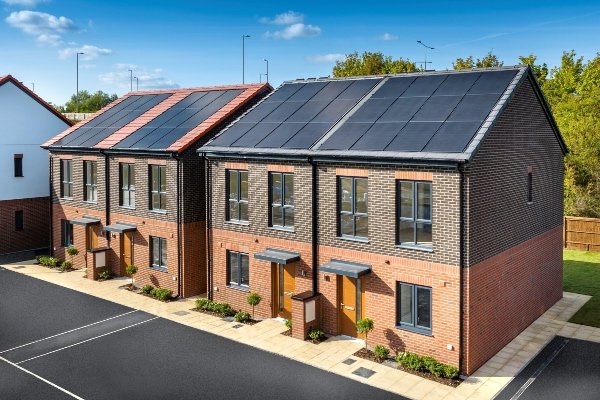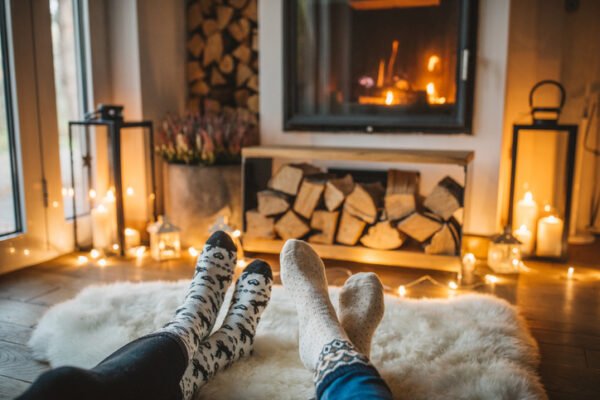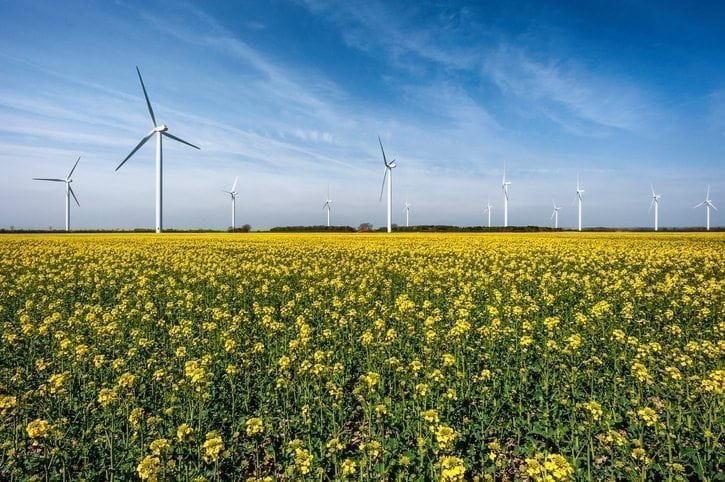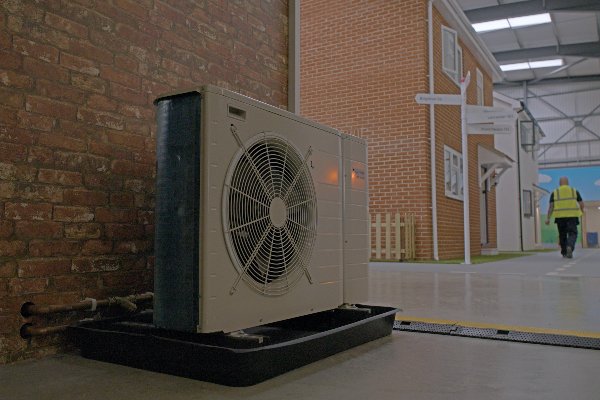Like EVs, domestic low-carbon tech – heat pumps, solar panels and home batteries – is growing exponentially.
The real magic happens when you combine these technologies and use smart controls to manage the electricity they import and export.
Zero Bills homes
We’re now working with house-builders to develop what we call ‘Zero Bills’ homes.
Someone who moves into a new-build home kitted out with green hardware (a heat pump, battery and solar) will pay zero energy bills for at least five years – guaranteed.
It works by integrating the low-carbon kit with our tech platform, Kraken, to optimise the power the homes generate and consume, enabling homeowners to import power when it’s cheapest and export it when their solar panels are generating lots of green electrons.
As families move into some of the first Zero Bills homes, we’re working hard to make Zero Bills the new standard – with plans to deliver 10,000 homes across the UK by 2025.
In the midst of a global fossil fuel crisis, this is the best way to demonstrate to people that clean energy is cheap energy.
Green power is cheap power
Zero Bills is a world first – but the truth is, it needn’t be. In fact, it’s perfectly straightforward to build green homes with no bills – because green energy is no longer a premium product.
Today, the price of renewably generated energy is the lowest ever. A green electron from solar or wind is cheaper to produce than a dirty electron.
But the way our energy system works means that the price of the most expensive power determines the price for all, so it’s harder for the cost benefits of green energy to rise to the surface.
The grid that operates today was designed exclusively around fossil fuels, with people in control rooms switching power plants on and off according to whatever energy humans need.
It’s harder to fit renewables into that world, but technology makes it entirely possible.
It’s here right now – and if we act fast, it could save us from the very worst consequences of climate catastrophe while driving down costs for consumers.
Humans can be pretty resistant to change. We’re addicted to burning fossil fuels because we’ve built our world – our homes – around doing it.
But here’s the thing: when the alternative is quicker, easier and cheaper, humans aren’t so resistant to change after all.
That’s what ‘Zero Bills’ is all about. Greener homes aren’t just good for the planet: they’ll end the worry and cost of bills all together.
Now, the rallying call is on developers and architects to build homes which use green tech – and for people to demand them.
 Play Video about This Rock Might Just Save The World
Play Video about This Rock Might Just Save The World Play Video about Play 2 hours of rock
Play Video about Play 2 hours of rock Play Video about Play 2 hours of brook
Play Video about Play 2 hours of brook Play Video about Play 2 hours of sheep
Play Video about Play 2 hours of sheep















































